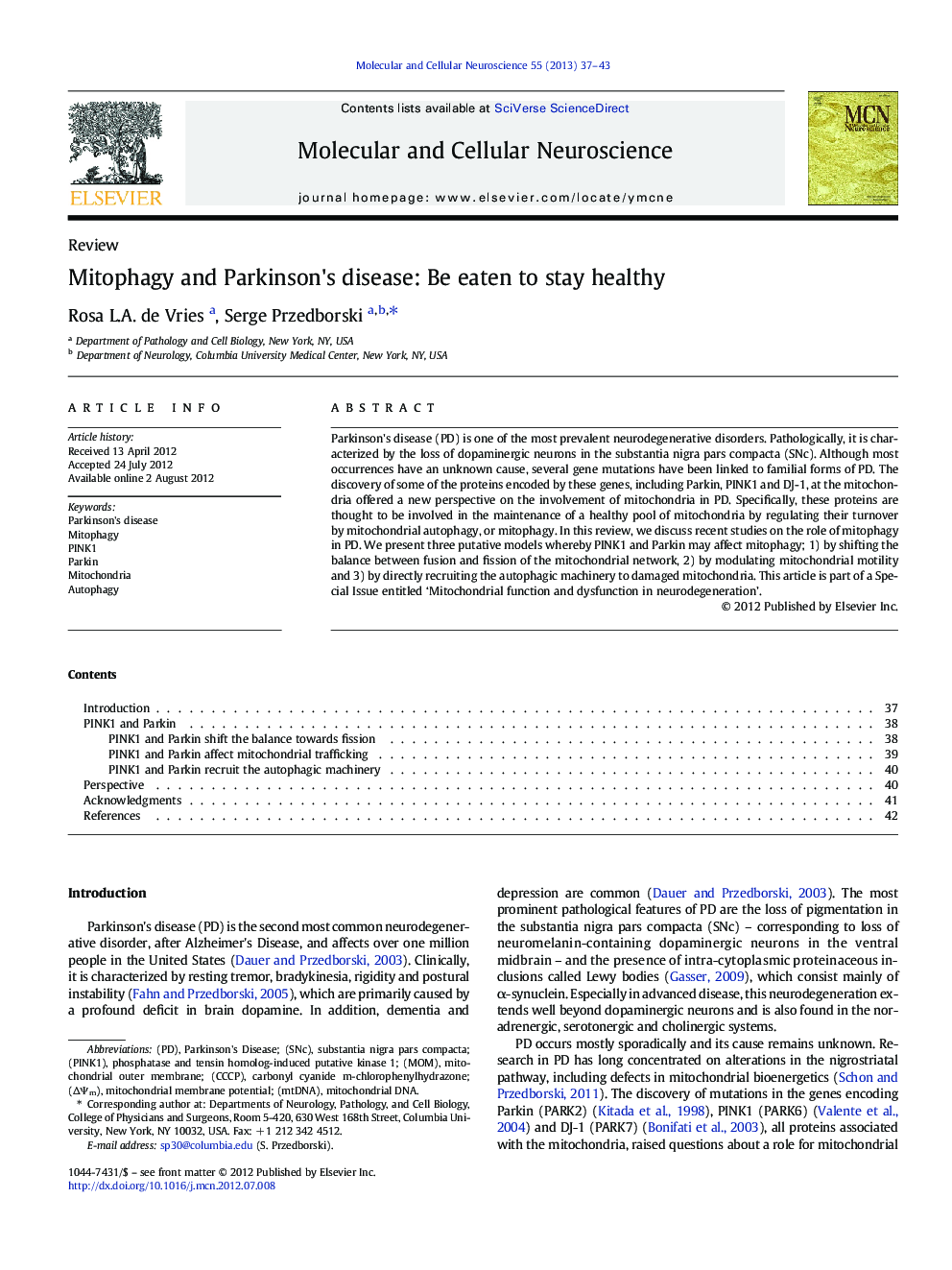| Article ID | Journal | Published Year | Pages | File Type |
|---|---|---|---|---|
| 8478693 | Molecular and Cellular Neuroscience | 2013 | 7 Pages |
Abstract
Parkinson's disease (PD) is one of the most prevalent neurodegenerative disorders. Pathologically, it is characterized by the loss of dopaminergic neurons in the substantia nigra pars compacta (SNc). Although most occurrences have an unknown cause, several gene mutations have been linked to familial forms of PD. The discovery of some of the proteins encoded by these genes, including Parkin, PINK1 and DJ-1, at the mitochondria offered a new perspective on the involvement of mitochondria in PD. Specifically, these proteins are thought to be involved in the maintenance of a healthy pool of mitochondria by regulating their turnover by mitochondrial autophagy, or mitophagy. In this review, we discuss recent studies on the role of mitophagy in PD. We present three putative models whereby PINK1 and Parkin may affect mitophagy; 1) by shifting the balance between fusion and fission of the mitochondrial network, 2) by modulating mitochondrial motility and 3) by directly recruiting the autophagic machinery to damaged mitochondria. This article is part of a Special Issue entitled 'Mitochondrial function and dysfunction in neurodegeneration'.
Keywords
Related Topics
Life Sciences
Biochemistry, Genetics and Molecular Biology
Cell Biology
Authors
Rosa L.A. de Vries, Serge Przedborski,
